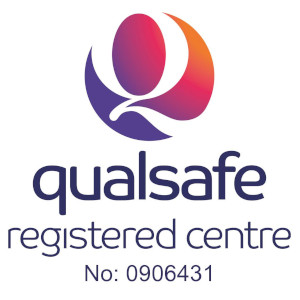Have you ever felt that you were on the verge of experiencing a panic attack?
Have you been in a situation where you have experienced a panic attack? Or even come across someone having a panic attack? Read on to find ways to help a panic attack…
Hyperventilation is the correct word for a panic attack. They usually happen when someone is anxious or in a sudden fright. Phobias are one trigger of a panic attack such as frightened of spiders, confined spaces, from a past memory or event. Or most commonly when a person becomes anxious. On occasions someone who is going through a severe asthma attack could become in a panic while they are experiencing difficulty in breathing.

A panic attack is where someone inhales large volumes of air that can be heard entering the lungs. This is not a life-threatening condition, but rather a manifestation of a mental health situation or event.
Having a panic attack can feel frightening and may make you feel you are having a heart attack. Some symptoms can be physical; including shaking, feeling disorientated, nausea, rapid, irregular heartbeats, feeling of a tight chest, dry mouth, breathlessness, sweating and dizziness. As the condition worsens they may think they cannot breathe. If the attack is a prolonged, the casualty may pass out and stop breathing up to 30 seconds.
Do you have to handle a panic attack by yourself?
There are many strategies to help yourself or someone else through a panic attack. Panic attacks always pass and the symptoms are not a sign of anything harmful happening.
Ways to help a panic attack;
- Be firm and calm, but reassuring. “It’s okay, you are having a panic attack, but it will soon pass.”
- Move the casualty to a quieter place and explain they are experiencing a panic attack and not to worry.
- Help the casualty to calm their breathing.
-
- Taking sips of water will reduce the amount of breathes.
- Breathing through their nose and out of their mouth
- Ask them to copy your breathing
- Watching something move; such as branches on trees, bubbles in a tank, or the movement of clouds. Concentrating on movement may help regulate their breathing
-
 DO NOT ask the casualty to breathe into a paper bag. If there is a more serious underlying problem this could make it worse.
DO NOT ask the casualty to breathe into a paper bag. If there is a more serious underlying problem this could make it worse. - Call 111 for advice or 999 for emergency help if the casualty show signs of hypoxia.
Ways to prevent a panic attack
- Keeping a track of the patterns and causes. This will prepare when the next one will occur
- Talking to someone will help understand and prevent further attacks. If there is no one to talk to there is Samaritans who can provide help and support
- Looking after yourself through exercise, regular sleep, a healthy diet, breathing exercises, daily gratitude or meditation to name a few
- Learning more about mental health and gaining knowledge about the subject
We have written a blog about ways to manage your mental well-being; https://www.hmbtrainingservices.co.uk/latest-news/five-ways-to-manage-your-well-being Becoming aware of anxiety, or the causes of a panic attack can help another attack from happening.
Join our Anxiety course now
Our short one hour introductory module explains what anxiety is, the different types, the causes, the signs and symptoms, and how to help someone. You will learn tangible techniques for coping with your feelings and managing situations that can trigger anxiety in you and others. The course provides valuable knowledge for personal and professional use.
Our mini anxiety course is for you if:
– You worry or concerned of others and/or your own anxiety
– To gain more knowledge about anxiety
– You are worried about someone and you do not want symptoms to develop into anything more concerning
– To gain an insight of signs and symptoms of anxiety
What is included:
– One hour of course content with videos and PowerPoint
– Further links for further reading
– Certificate of attendance
– Contact support via email
Further understanding of Anxiety
Anxiety is a sensation of unease that can range from minor to severe, such as worry or fear. Everyone has feelings of anxiety at some point in their life. For example, you may feel worried and anxious about sitting an exam, or having a medical test or job interview. Anxiety is a natural human response when we feel that we are under threat. It can be experienced through our thoughts, feelings and physical sensations.
It’s totally normal to feel anxious at moments like this. But some people find it hard to control their worries. Their feelings of anxiety are more constant and can often affect their daily lives.
With understanding what a panic attack is from above, it can be a form of anxiety. A panic attack is a sudden and intense feeling of fear and anxiety. It can happen quite suddenly and feel overwhelming or scary. Knowing the symptoms of the onset of the anxiety can help us element a panic attack coming on.
How to book?
We provide mental health courses in the classroom and over zoom. For information on our accredited courses click here;
https://www.hmbtrainingservices.co.uk/latest-news/offer/level-2-first-aid-mental-health
Need more information? Call us on 01543 453338 or email us at info@hmbtrainingservices.co.uk
 DO NOT ask the casualty to breathe into a paper bag. If there is a more serious underlying problem this could make it worse.
DO NOT ask the casualty to breathe into a paper bag. If there is a more serious underlying problem this could make it worse. 



